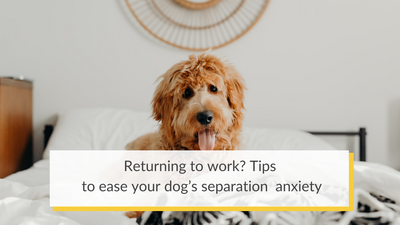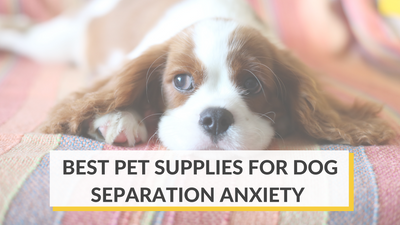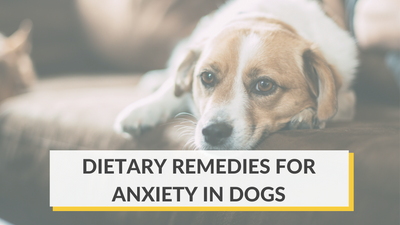Puppies love to follow their parents around everywhere they go and with so much yet to learn about the world, they might feel a little lost sometimes — especially when mom and dad aren't around.
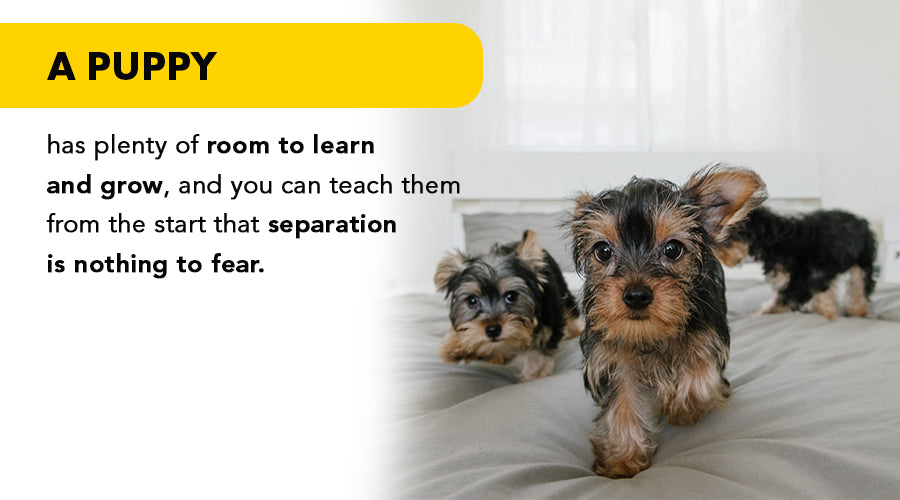
On the bright side, a puppy has plenty of room to learn and grow, and you can teach them from the start that separation is nothing to fear. Once they learn they can enjoy time apart, separation won’t be a painful experience throughout their lives.
In this chapter, we’ll show you how to help your puppy grow out of separation anxiety, as well as tips to prevent separation anxiety.
Tips to Help Your Puppy With Separation Anxiety
Here are some tips and tricks to help your puppy cope with separation anxiety and learn to love, or at least tolerate, their time alone:
- Take your dog for a walk before leaving: Puppies have tons of energy, and if they get to use up some of that energy before you leave, they are more likely to rest or sleep while you are gone. Dogs of any age benefit from daily exercise. Make sure your dog gets at least 30 minutes of aerobic exercise every day. End exercise 20 to 30 minutes before you leave so that your dog has time to calm down.
- Do not communicate with your dog that you are leaving: As tough as it may be, resist the urge to shower your puppy with affection before you leave because this will make your absence harder to deal with. This means no hugs, kisses or long goodbyes before you leave.
- Say goodbye a long time before leaving: Try not to draw too much attention to your departure, and avoid saying goodbye long before you leave instead of minutes before you walk out the door.
- Project confidence and calmness: Puppies look to their parents to show them how to act and feel. If you have an air of confidence and control, they are more likely to feel safe and secure about the situation.
- Start out small: Start with leaving your puppy for only five minutes at a time, and slowly increase the time as they get more comfortable with you leaving.
- Leave an audiobook on for a comforting sound: Audiobooks or soothing music may help calm puppies and cover up outside sounds that scare them.
- Condition your puppy: If you give your puppy a treat before you leave, they will less likely dread future departures.
- Make sure your puppy gets plenty of mental stimulation: A bored puppy is more likely to focus on your absence, so keep them stimulated with fun toys and exercise, and they’ll be happier and healthier all-around.
- Try not to make a lot of noise or give clues when you’re leaving: Make departure as subtle as possible. Don’t turn it into a big event.
- Repeat cues until they lose meaning: Pick up your keys, open and close the door and make all the actions you would as if you were leaving, but don't leave.
- Give the puppy a relaxing toy, like a KONG, five minutes before you leave: With a well-stuffed KONG or another stimulating treat, a puppy will be too distracted to notice mom and dad aren't home.
Preventing Separation Anxiety With a New Puppy
You can warm your new puppy up to the idea of home alone time, right from the get-go. Follow these tips to prevent separation anxiety:
- Bring your new puppy home when someone can be there.
- Create a safe, cozy area beforehand.
- Do not leave a puppy alone for five to ten hours at a time.
- However, give your puppy “alone time” every day in a puppy-safe area.
What Won’t Work
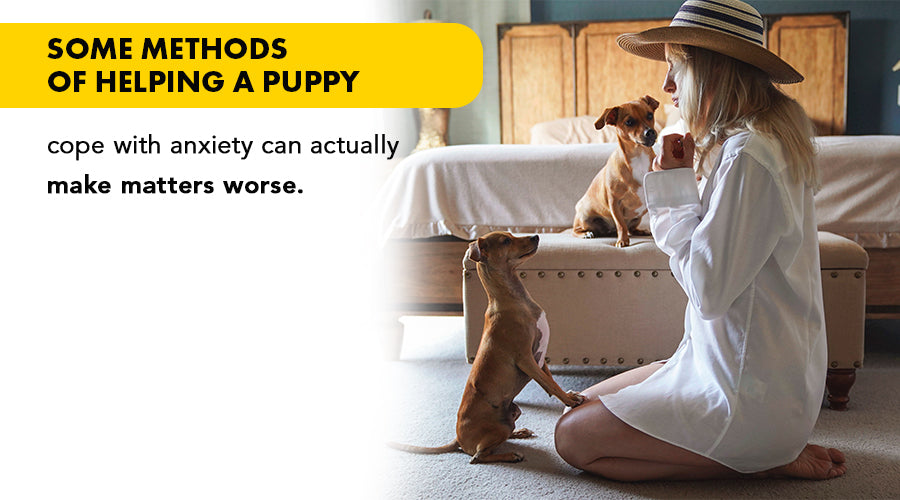
Some methods of helping a puppy cope with anxiety can actually make matters worse, even if they seem like they should work. These include:
- Punishment: Punishing a dog for having anxiety will make their anxiety worse.
- Bringing another dog into the home: Although sometimes another dog may be a comforting companion, adding a new family member can add stress, too. Make sure the dogs are comfortable and relaxed around each other before leaving them alone.
- Crating: Crating may help some dogs feel safe, but it can worsen anxiety for others. Do not force a dog into a crate.
- Radio or TV noise: Something relaxing on the TV or radio may help, but these tricks alone will not get rid of separation anxiety.
- Obedience training: Obedience training may help a dog develop a stronger mentality, but overall it has little to do with separation anxiety.
The key with a puppy is to reward them when they behave well and not reward or praise fear. Show them that there is nothing to be afraid of by acting confident and strong. As the leader of the “pack,” they will follow your example.
Table of Contents
- Introduction: How to Help a Dog With Separation Anxiety
- Chapter 1: Dog Separation Anxiety Symptoms
- Chapter 2: Medication for Separation Anxiety in Dogs
- Chapter 3: Best Toys for Dogs With Separation Anxiety
- Chapter 4: Dogs Breeds With Separation Anxiety
- Chapter 5: How to Help Puppies With Separation Anxiety
- Chapter 6: How to Train a Dog With Separation Anxiety
- Chapter 7: How Furbo Helps With Separation Anxiety
- Conclusion/Chapter 8: Why Some Dogs Have Separation Anxiety

